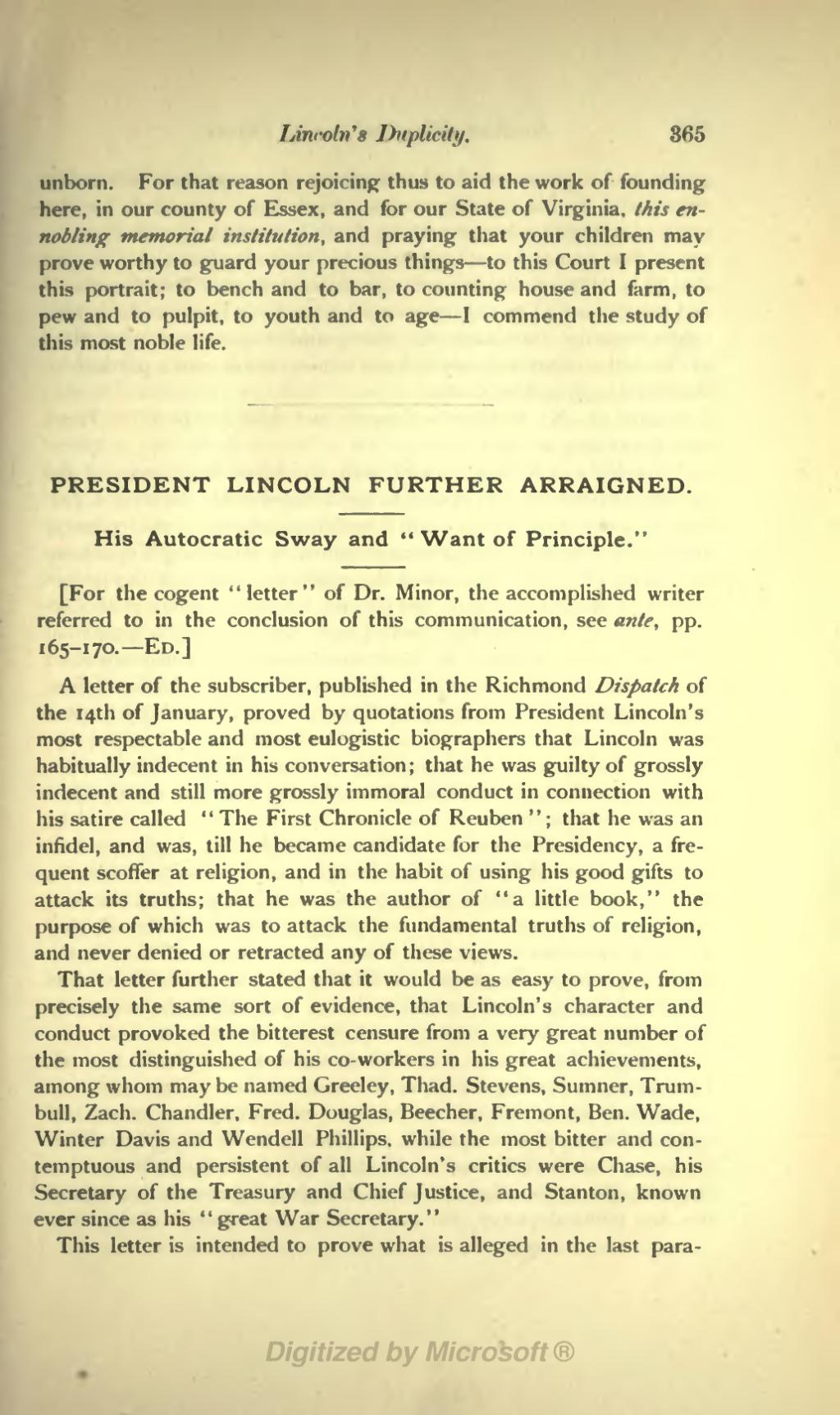I An ':' /><//*///'///. 365
unborn. For that reason rejoicing thus to aid the work of founding here, in our county of Essex, and for our State of Virginia, this en- nobling memorial instil it (ion, and praying that your children may prove worthy to guard your precious things to this Court I present this portrait; to bench and to bar, to counting house and farm, to pew and to pulpit, to youth and to age I commend the study of this most noble life.
PRESIDENT LINCOLN FURTHER ARRAIGNED.
His Autocratic Sway and " Want of Principle."
[For the cogent "letter" of Dr. Minor, the accomplished writer referred to in the conclusion of this communication, see ante, pp. 165-170. ED.]
A letter of the subscriber, published in the Richmond Dispatch of the I4th of January, proved by quotations from President Lincoln's most respectable and most eulogistic biographers that Lincoln was habitually indecent in his conversation; that he was guilty of grossly indecent and still more grossly immoral conduct in connection with his satire called " The First Chronicle of Reuben " ; that he was an infidel, and was, till he became candidate for the Presidency, a fre- quent scoffer at religion, and in the habit of using his good gifts to attack its truths; that he was the author of "a little book," the purpose of which was to attack the fundamental truths of religion, and never denied or retracted any of these views.
That letter further stated that it would be as easy to prove, from precisely the same sort of evidence, that Lincoln's character and conduct provoked the bitterest censure from a very great number of the most distinguished of his co-workers in his great achievements, among whom may be named Greeley, Thad. Stevens, Sumner, Trum- bull, Zach. Chandler, Fred. Douglas, Beecher, Fremont, Ben. Wade, Winter Davis and Wendell Phillips, while the most bitter and con- temptuous and persistent of all Lincoln's critics were Chase, his Secretary of the Treasury and Chief Justice, and Stanton, known ever since as his ' ' great War Secretary. ' '
This letter is intended to prove what is alleged in the last para-
